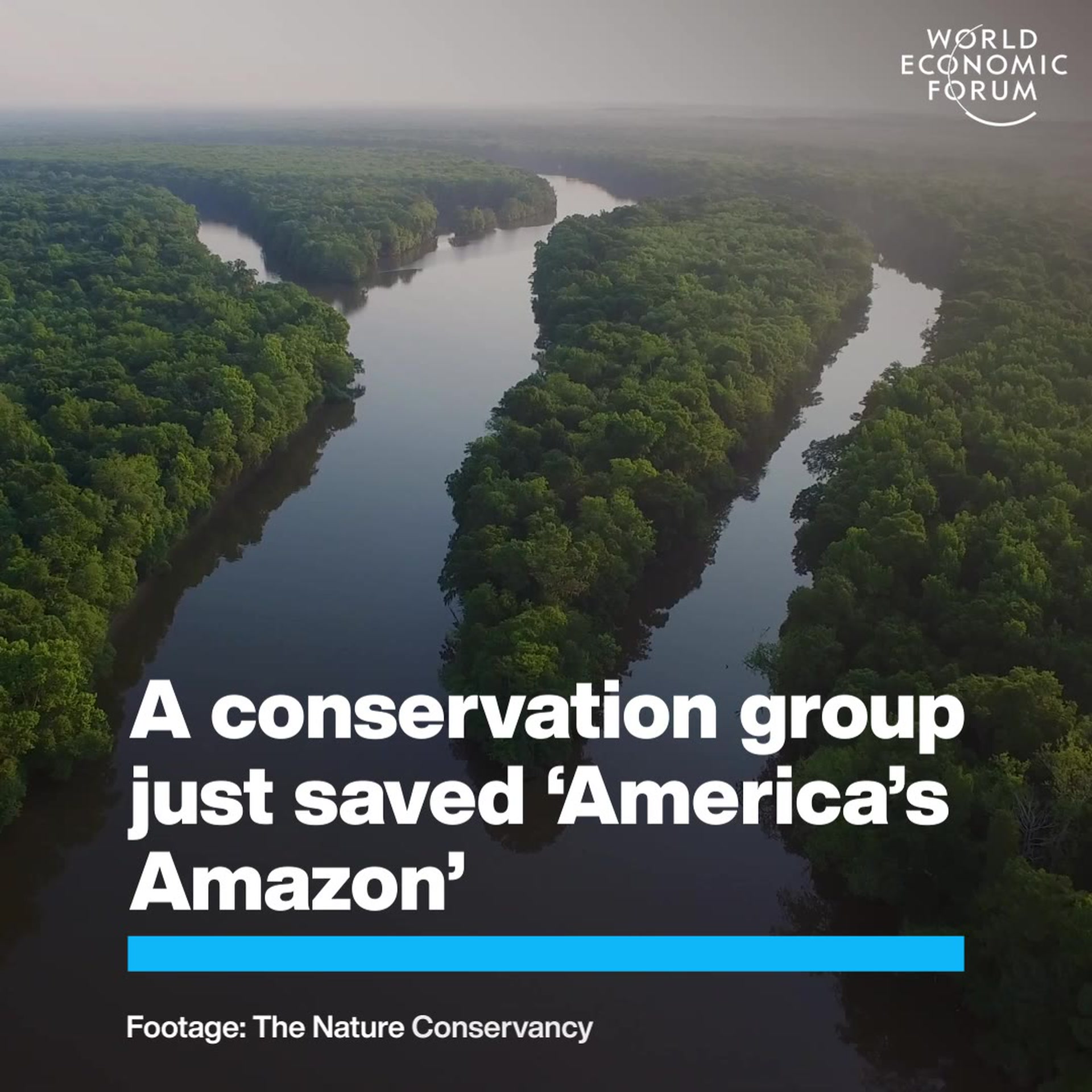Businesses' efforts to reverse nature loss will help limit climate change, too

We need a holistic approach to tackle the crises we face - and science can help Image: REUTERS/Bruno Kelly

Get involved with our crowdsourced digital platform to deliver impact at scale
Stay up to date:
Nature and Biodiversity
- The nature loss and climate change crises are fundamentally interlinked.
- Hundreds of companies are committed to reducing their emissions.
- Today, a growing number of firms want to broaden this to reduce their impact on the natural world.
- The Science Based Targets Network aims to help firms facilitate these changes.
Greta Thunberg’s message that ‘our house is on fire’ has never been more powerful than it is right now. What is being talked about less is the fact that the climate crisis is inextricably linked with the unsustainable pressure faced by all the Earth’s critical life support systems. Addressing this is an essential part of the solution.
While companies in their hundreds have been stepping up to ensure their emissions go down, many business leaders have been growing increasingly concerned about their environmental impacts beyond the climate.
We can solve the climate crisis - but only if we recognize the urgency of tackling the nature crisis alongside it. Climate change is only one of the urgent and interlocking crises facing the world's global commons - the foundation of human well-being. The Earth's soils, air, ocean, biodiversity and freshwater are also increasingly threatened. Together they interact with the climate system and determine the state of the planet. There can be no safe and prosperous future if we destabilize the Earth’s systems and undermine the web of life that sustains us all.
Nearly 800 of the world’s major companies are now committed to ensure they are doing ‘enough’ to reduce their greenhouse gas emissions through the Science Based Targets initiative (SBTi). Alongside working towards their science-based emission reduction targets, a growing number of companies are also looking at how they can reduce their impacts on the Earth’s freshwater, land, biodiversity and ocean. They and many more have been calling for science-based guidance to ensure that they are doing enough.
In response to this, the Science Based Targets Network has been launched and over 45 companies have already registered their interest. Scientists on the Earth Commission, which was launched last September, together with more than 25 leading organizations, have started to work with companies to define their impacts on all of Earth’s natural systems and identify how much they need to do - and how quickly - to restore balance before it’s too late.
Setting science-based targets is not only good for the planet, it’s also good for business. Hundreds of businesses working to reduce emissions through the SBTi are experiencing multiple benefits like increased investor confidence, reduced risk and stronger growth. When companies incorporate the restoration of all the Earth’s natural systems into their business models, they will ensure stable supply chains while enabling both society and the environment to thrive.
The Earth Commission’s scientists will work closely with the Science Based Targets Network to inform the methods and resources for the new targets. This will work in the same way as the IPCC findings have informed the methods for setting science-based targets for the climate.
Companies can start preparing right away. They can get ahead by mapping their supply chains and assessing the risks to freshwater, biodiversity, ecosystems and oceans in major sourcing locations. They need to disclose their environmental data in a standardized format, for example to CDP. There is also no time to waste in terms of taking action to avoid and minimize their companies’ negative impacts on land, oceans, freshwater and biodiversity throughout their value chains. And by looking for opportunities to make a positive contribution to restoring balance to the Earth’s natural systems, they will already be on their journey. Companies are also in a powerful position to advocate for policies to address nature loss and help get clarity and certainty about the future of regulation. They can do this by joining Business for Nature.
The Science Based Targets Network isn’t working in isolation; we recognize that we need a big plan to drive the shift to a new global economy. The Science Based Targets Network is part of the Global Commons Alliance, a network with the bold aim of positively transforming the world’s economic systems and protecting the global commons. The Earth Commission is also part of the Global Commons Alliance along with Earth HQ (under construction at www.globalcommonsalliance.org) which will serve as a media portal for the planet, sharing an overall picture of how Earth's systems are performing and tracking progress. The fourth component, Systems Lab, will identify gaps and promote coalitions as they push towards systems tipping points in key global commons areas such as forests, ocean, water and urban management.
We need a holistic approach to tackling the crises we face which brings together science, action, business and government. The Global Commons Alliance aims to do this and by setting science-based targets for all the Earth’s systems, business will play a pivotal role.
Don't miss any update on this topic
Create a free account and access your personalized content collection with our latest publications and analyses.
License and Republishing
World Economic Forum articles may be republished in accordance with the Creative Commons Attribution-NonCommercial-NoDerivatives 4.0 International Public License, and in accordance with our Terms of Use.
The views expressed in this article are those of the author alone and not the World Economic Forum.
The Agenda Weekly
A weekly update of the most important issues driving the global agenda
You can unsubscribe at any time using the link in our emails. For more details, review our privacy policy.
More on Nature and BiodiversitySee all
Mark John Costello
April 8, 2024
John Dutton and Allison Voss
March 20, 2024
Simon Torkington
March 14, 2024
Meg Jones
February 22, 2024






